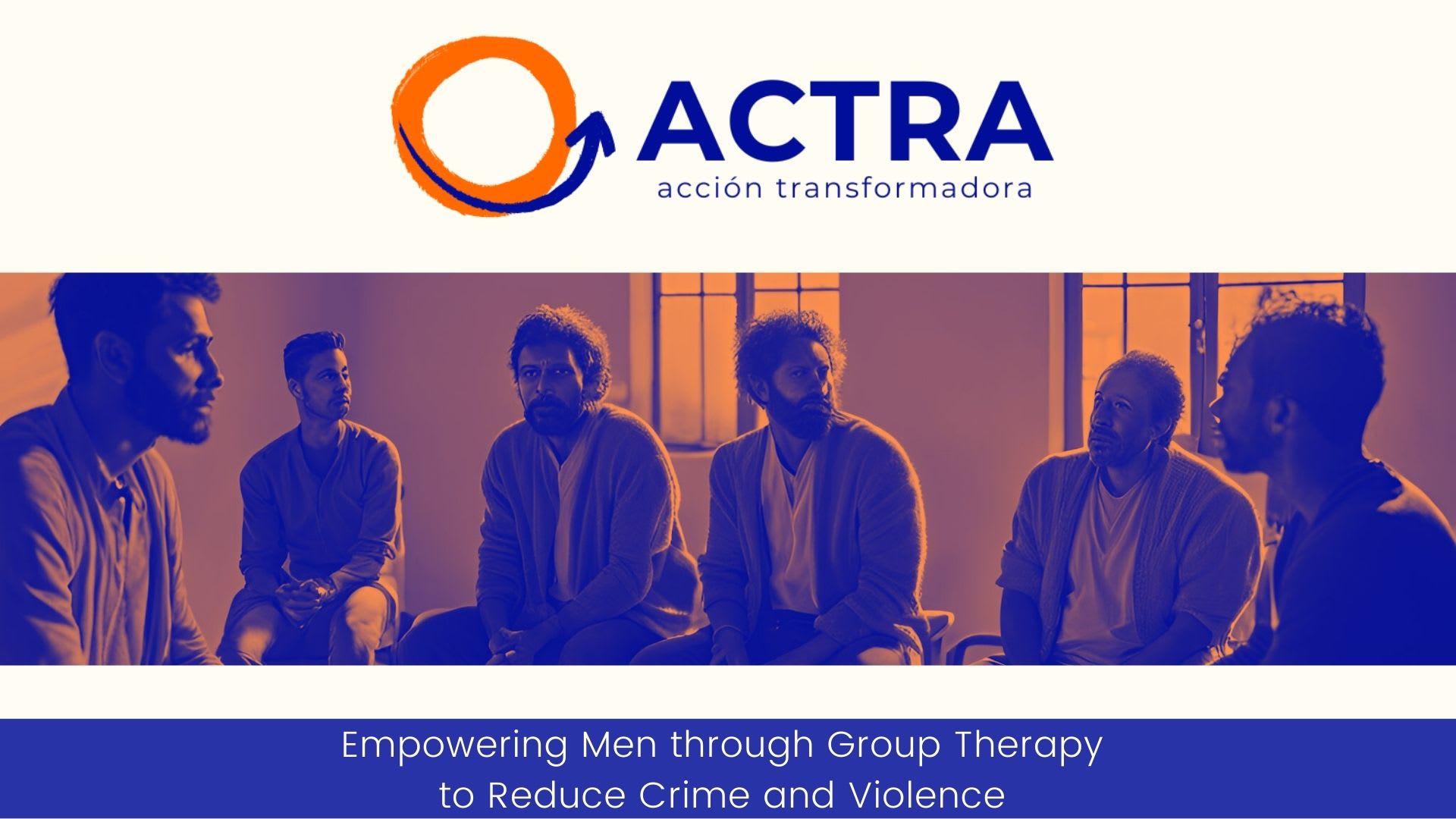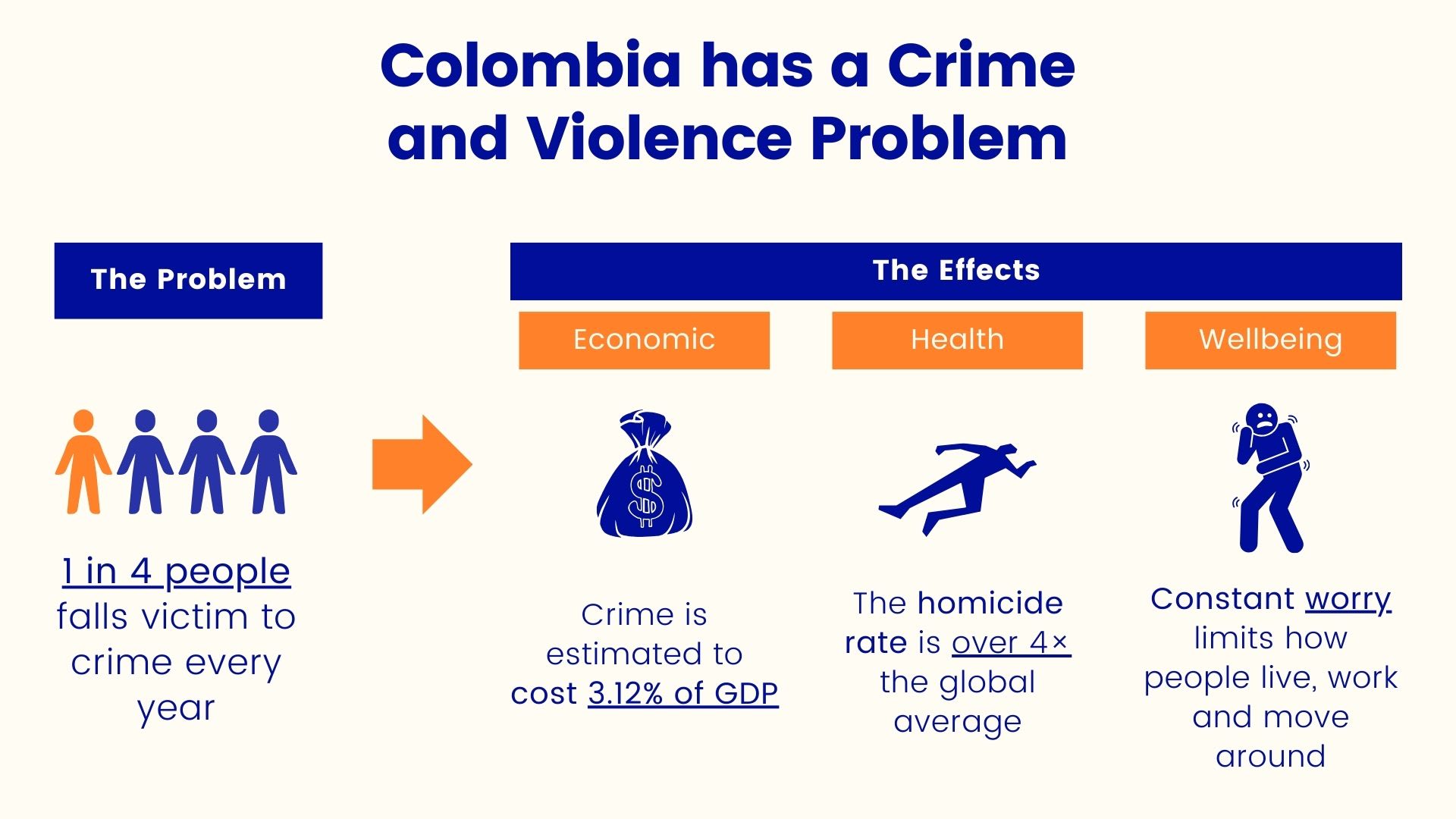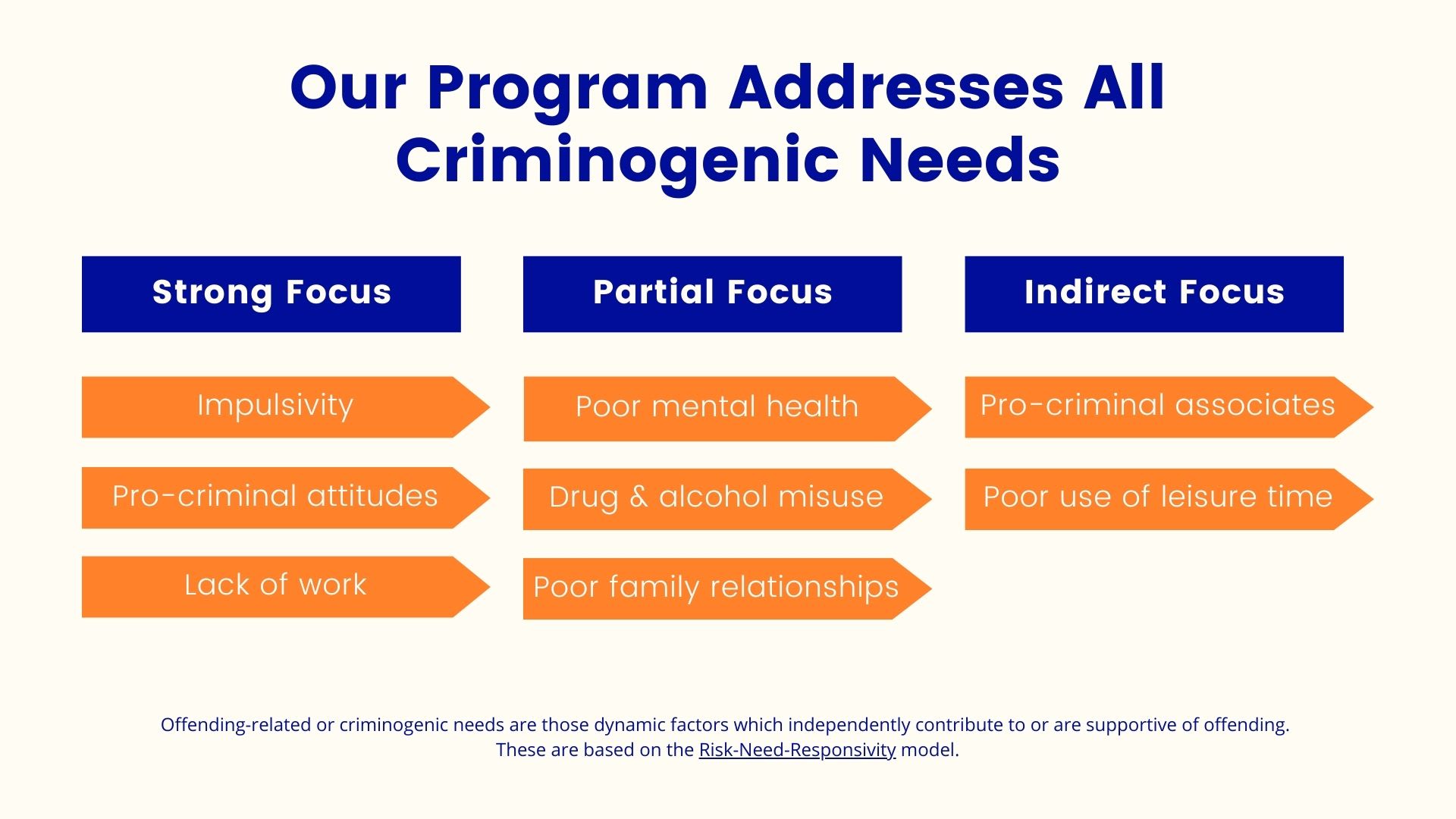
Summary
ACTRA (Acción Transformadora) is a new organization, just incubated through the AIM Charity Entrepreneurship Incubation Program. Our first year goal is to adapt an incredibly cost-effective crime prevention program to the Latin American context for the first time. Doing so successfully could allow us to scale massively from year two on, as government funding for programs as ours is often available in the region.
We received seed funding for a bare-bone implementation budget, but more funding would allow us to take less risks, move faster and increase the quality of our first year’s implementation (more details below). Also, our program would greatly benefit from an additional implementation research budget for potential research partners.
We believe that funding us could be among the most impactful funding choices, as the first year of a charity’s existence is when the marginal dollar makes the most difference.
If you are interested, please don’t hesitate to reach out to us. We can send you additional materials like the exact budgets, our first year plan, cost-effectiveness analysis and arrange a one on one meeting.
Background
The Problem: Latin America has the highest crime rates in the world. In Colombia, the homicide rate is over four times the global average, with one in four people falling victim to crime yearly. Citizens in the region rate safety as their number one concern, even above unemployment.

The Gap: Only 3 - 10% of government programs in the region are evidence-based. This misallocation highlights the urgent need to invest in proven, cost-effective solutions.
The Solution: Cognitive Behavioral Therapy (CBT) reliably prevents chronic offending by shifting identities and promoting thoughtful decision-making. CBT-informed approaches are estimated to be >7x more cost-effective than the next best crime reduction intervention.
Evidence: Over 50 high-quality randomized studies show CBT reduces criminal relapse by 25-50%, theft by 54%, and homicide arrests by 65%. One CBT program alone prevented ~300 crimes per participant over a decade at ~$2 per crime averted. The Inter-American Development Bank (IDB), and leading research organizations (J-PAL and IPA) all endorse CBT as highly promising, with IPA calling it a "best bet."
Our mission is to implement and scale the most cost-effective solutions against violence and crime, starting in Colombia. As the first organization to scale CBT for at-risk populations across Latin America, we'll apply the principles of iterative learning to ensure our program's effectiveness and cultural fit.
Near term plans: In early 2025, we'll co-design a group therapy program with our target participants. Mid-2025, we'll pilot the full intervention to refine logistics, outreach, and engagement strategies. Following that, we'll conduct A/B tests and a pilot RCT to optimize scalability and cost-effectiveness. Each iteration will provide valuable insights, allowing us to adapt and improve until we're ready for a full-scale RCT, after which we'll focus on expanding our reach across the region.

Cost-effectiveness: Three different models converge in CBT-informed programs being 13x-29x more effective than direct cash transfers at scale (GiveWell “pre-2024 estimate”). The intervention delivers benefits in health (33%), economic gains (32%), wellbeing (29%), and business productivity (6%).
Learn more about us here. This is the link to the AIM/Charity Entrepreneurship report recommending the idea.
Scarcely Funded: First Year Implementation
As announced in this post, we have just received seed funding for our first year’s implementation. However, we have only received our minimal budget and more funding would allow us to take less risks, move faster and increase the quality of our first year’s implementation.
Additional funding of $20,000 would allow us to:
- Enhance outreach and program quality by securing an additional scoping visit to a second city
- Hire a freelance CBT expert to consult us during curriculum design
- Offer competitive market salaries for our first two facilitators, leading to higher quality implementation
- Pay for better survey data, legal support and access to relevant conferences.
Additional funding of $50,000 total (+$30,000) would allow us to:
- Offer an increased budget to our implementation partner, leading to faster and more effective pilot work
- Hire an experienced CBT expert to design the curriculum for us
- Visit the implementor of STYL in person, offering valuable on-the-ground learning
- Stronger participant engagement incentives, making sure our pilot will not fail due to low take-up or adherence
- Rent an office as soon as we start implementing
We have a detailed funding proposal ready that we are happy to share on request.
Need for Funding: Implementation Research
On top of the increased implementation budget, our project would greatly benefit from professional implementation research. Having a research partner with proper equipment, skills to transcribe and formally analyze qualitative data will improve the insight we can gather in our early on the ground stages by manyfold. Currently we are seeking the following funding:
- $46,000 would allow us to partner with a strong research partner (like IPA) for the human centered design stage and carry out 20 cognitive interviews, 6 focus groups and 4 prototyping sessions. This formative research would allow us to culturally translate the curriculum and to refine our program based on the needs of our target population (See funding pitch here).
- Another $82,000 would allow us to carry out a full process evaluation for our pilot, including prototyping a shortened version of our program with two groups and then running the full version of our program with four groups, while collecting intake, mid-term and post intervention qualitative and quantitative data, and refining the program according to our results.
Conclusion: Why Invest in Our Vision?
Advantages
Funding our organization in its first year has a significant impact. Early investments allow us to build a stronger foundation by refining our program and creating efficiencies that will save both time and resources in future years. According to a survey conducted with past charity entrepreneurs, additional funding would have made the biggest difference in their first years.
- The success or challenges of this pilot phase will set the course for our future and play a pivotal role in our second-year fundraising efforts
- Currently, we have enough funding to implement a basic version of our program but ample room for additional funding that could meaningfully enhance our impact.
- Given our early stage, we may face challenges in securing additional budgets from larger, institutional donors. This makes the value of your funding especially high—it positions us to attract future funding by proving our program's efficacy and long-term potential.
Risks
While early-stage funding can drive substantial impact, it also carries inherent risks. We may encounter unforeseen challenges that could lead to program closure, in which case your funding may have had a greater impact in more established programs.

Thanks for the post, and for working on such an important problem! This sounds very exciting, and I'm very much looking forward to future reports of ACTRA.
I have to admit though I'm a bit baffled by the apparent evidence for the effectiveness of such interventions:
These numbers sounds "too good to be true" on a level I can barely put into words. I haven't looked into the linked studies in detail, and I think very highly of Charity Entrepreneurship and their thorough research, so I'm sure there is indeed something to it. Yet, I wonder, is there a good understanding as to why CBT apparently works so well in this case? I generally do well with the heuristics of "most effect sizes are small" and "behavior change is very difficult (even in yourself, let alone in others)". Of course a heuristic is just that, a heuristic, and there are always cases where they don't hold. What is your current understanding why this area in particular would be so different, and such large positive effect sizes are comparably ~easily achievable?
To expand a bit, I would assume that many different factors contribute to a person leading a life of crime. One part of that surely is some degree of impulsiveness, mental health, dealing with negative emotions - the kinds of properties that CBT can plausibly improve[1] - but I would assume that there are many other, potentially even stronger effects (social circle in particular, career perspective and unemployment, substance abuse, being in debt, ...) that should not be affected that much, if at all, by a CBT intervention. Hence, CBT alone reducing crime rates by 50% in some studies just seems very unexpected to me.
Hope I don't sound too critical. But would be very interested in your views on this. :)
And "improve" usually means some marginal improvement - these issues are usually not fully solved by CBT.
Thanks for this write-up, I'm hoping to see where ACTRA heads in the coming year! I wish you the best of luck. Have you received any additional funding so far?